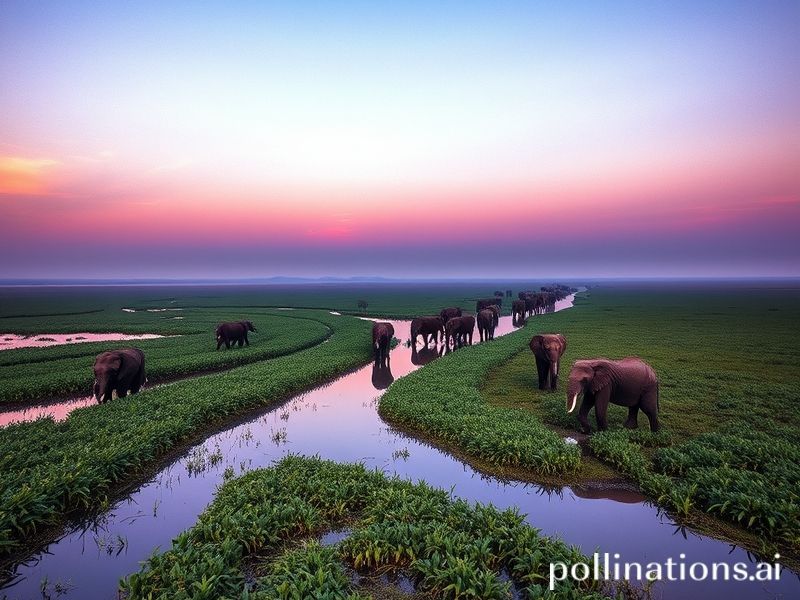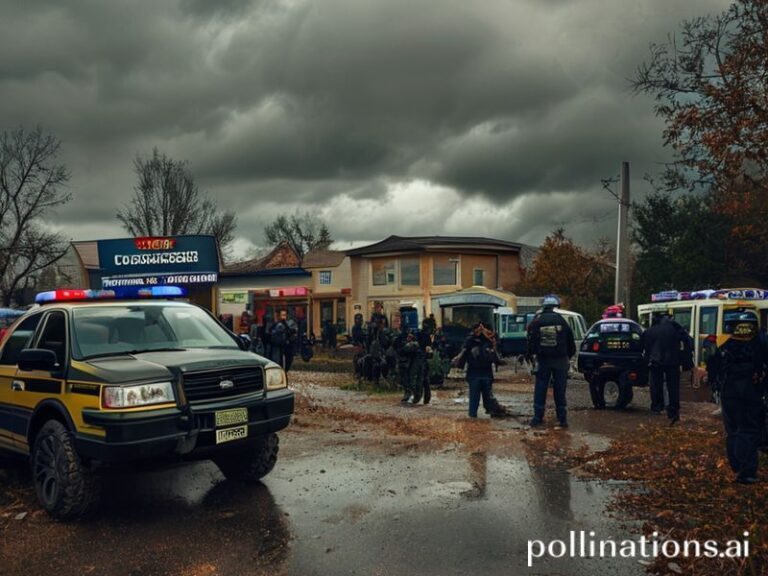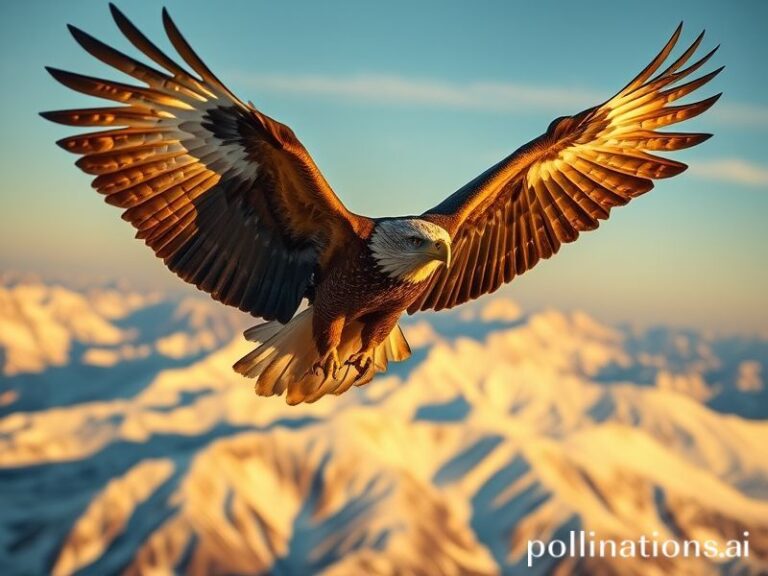Botswana: The Unlikely Adult in the Room While the World Loses Its Mind
**Botswana: The Last Honest Man’s Oasis in a World of Banana Republics**
The Southern African nation that gave the world the world’s largest diamond and, more importantly, the world’s largest elephant herd, has spent 2024 reminding everyone that functioning democracies still exist—somewhere between the Kalahari and the collective Western nervous breakdown. While the rest of us scroll through headlines about rigged elections, collapsing currencies, and leaders who treat constitutions like IKEA instructions they never bothered to read, Botswana keeps plodding along with the dignified gait of an old bull elephant who’s seen worse.
To international observers nursing hangovers from Brexit, Trumpism, and whatever fresh hell emerges from the next G-20 summit, Botswana is the geopolitical equivalent of that annoyingly competent friend who pays off their mortgage early and still remembers your birthday. The country just celebrated 58 years of uninterrupted multi-party democracy—an achievement roughly as common in 2024 as a TikTok influencer with an actual attention span. Its corruption index ranks lower than Spain’s, which is either a testament to Botswana’s integrity or an indictment of sangria-fueled municipal contracts—possibly both.
The global significance? In an era where “resource-rich African nation” usually translates to “impending coup followed by IMF tears,” Botswana’s diamond revenues have somehow funded schools instead of Swiss bank accounts. Debswana—the 50/50 partnership between De Beers and the Botswana government—continues to generate about 70% of export earnings without the usual accompanying kleptocratic circus. Watching this unfold from London boardrooms is like observing a unicorn that not only exists but files its taxes on time.
Meanwhile, the world’s newest Cold War proxy fight is playing out over, of all things, elephants. Botswana hosts 130,000 of them—roughly one-third of Africa’s remaining population—which makes the country either a conservation success story or the world’s most ambitious pachyderm refugee camp, depending on your cynicism levels. Germany recently discovered that criticizing Botswana’s elephant management policies results in diplomatic relations as frosty as a Berlin winter. President Mokgweetsi Masisi responded to proposed EU import bans by offering to send 20,000 elephants to Germany’s Grunewald forest, a suggestion that combined environmental policy with trolling of Olympic caliber. The implication was clear: you handle the wildlife management, we’ll handle the sovereign decisions—preferably without lectures from countries that exterminated their own megafauna centuries ago.
The broader implications ripple outward like ripples in the Okavango Delta. As climate change turns neighboring regions into audition reels for Mad Max sequels, Botswana’s stable governance and water resources become increasingly strategic. Chinese infrastructure loans—those charming Trojan horses wrapped in belt-and-road packaging—have arrived, but with the cautious eye of a country that watched Zambia lose its international airport to debt diplomacy. The new Kazungula Bridge, linking Botswana to Zambia across the Zambezi, isn’t just concrete and steel; it’s a 923-meter metaphor for navigating between Chinese capital and Western lectures with the dexterity of a polygamous elephant balancing on a circus ball.
Yet beneath this success story lurks the eternal African paradox: prosperity built on non-renewable resources in a renewable crisis. Botswana’s diamonds will eventually run out—probably around the same time Europe finally sorts out its energy policy—leaving behind a well-educated population, functional institutions, and the novel challenge of economic diversification. The country’s sovereign wealth fund, the Pula Fund, currently cushions this transition like a financial whoopee cushion, but even the best-managed economies can’t outrun global commodity cycles forever.
In the end, Botswana stands as a polite rebuttal to every lazy narrative about African governance, a nation that proves democracy and development aren’t mutually exclusive—even if they increasingly appear so elsewhere. While the rest of the world perfects the art of democratic backsliding, this sparsely populated country of 2.4 million keeps demonstrating that boring competence is, in fact, the most radical policy of all. It’s enough to make one wonder if the elephants know something the rest of us don’t—perhaps that the key to survival isn’t being the biggest or the strongest, but simply refusing to trample your own ecosystem. A lesson certain superpowers might consider, between bouts of self-immolation.







